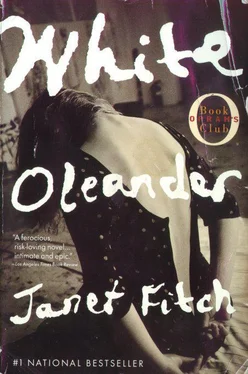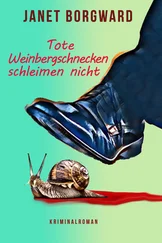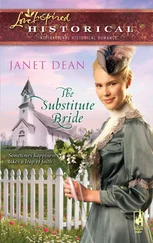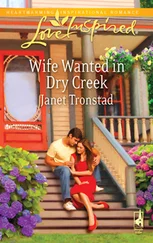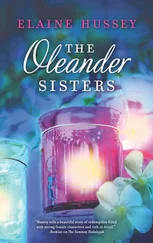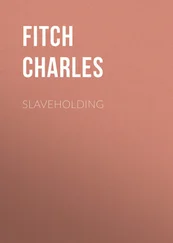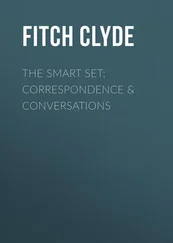Janet Fitch - White Oleander
Здесь есть возможность читать онлайн «Janet Fitch - White Oleander» весь текст электронной книги совершенно бесплатно (целиком полную версию без сокращений). В некоторых случаях можно слушать аудио, скачать через торрент в формате fb2 и присутствует краткое содержание. Жанр: Современная проза, на английском языке. Описание произведения, (предисловие) а так же отзывы посетителей доступны на портале библиотеки ЛибКат.
- Название:White Oleander
- Автор:
- Жанр:
- Год:неизвестен
- ISBN:нет данных
- Рейтинг книги:3 / 5. Голосов: 1
-
Избранное:Добавить в избранное
- Отзывы:
-
Ваша оценка:
- 60
- 1
- 2
- 3
- 4
- 5
White Oleander: краткое содержание, описание и аннотация
Предлагаем к чтению аннотацию, описание, краткое содержание или предисловие (зависит от того, что написал сам автор книги «White Oleander»). Если вы не нашли необходимую информацию о книге — напишите в комментариях, мы постараемся отыскать её.
White Oleander — читать онлайн бесплатно полную книгу (весь текст) целиком
Ниже представлен текст книги, разбитый по страницам. Система сохранения места последней прочитанной страницы, позволяет с удобством читать онлайн бесплатно книгу «White Oleander», без необходимости каждый раз заново искать на чём Вы остановились. Поставьте закладку, и сможете в любой момент перейти на страницу, на которой закончили чтение.
Интервал:
Закладка:
“ ‘Worship’ is not quite the word we’re looking for here,” she said, watching the road. “Worship assumes a spiritual dimension. I’m looking for a term with an earthier connotation.”
“Then I was born.”
“Then you were born.”
I imagined him and her, the blonds, him with that wide laughing mouth, probably stoned out of his mind, her, comfortable, in the curve of his heavy arm. “Did he love me?”
She laughed, the commas of irony framing her mouth. “He was rather a child himself, I’m afraid. He loved you the way a boy loves a pet turtle, or a road race set. He could take you to the beach and play with you for hours, lifting you up and down in the surf. Or he could stick you in the playpen and leave the house to go out drinking with his friends, when he was supposed to be baby-sitting. One day I came home and there had been a fire. His turpentine-soaked rags and brushes had caught fire, the house went up in about five minutes. He was nowhere around. Evidently your crib sheet had already scorched. It was a miracle you weren’t burned alive. A neighbor heard you screaming.”
I tried to remember, the playpen, the fire. I could distinctly remember the smell of turpentine, a smell I’d always loved. But the smell of fire, that pervasive odor of danger, I’d always associated with my mother.
“That was the end of our idyll de Venice Beach. I was tired of his mediocrity, his excuses. I was making what little money we had, he was living off me, we had no home anymore. I told him it was over. He was ready, believe me, there were no tears on that score. And so ends the saga of Ingrid and Klaus.”
But all I could think of was the big man lifting me in and out of the surf. I could almost remember it. The feeling of the waves on my feet, bubbling like laughter. The smell of the sea, and the roar. “Did he ever try to see me, as I grew up?”
“Why do you want to know all this useless history?” she snapped, pushing away from the tree. She squatted so she could look me in the eye. Sweat beaded her forehead. “It’s just going to hurt you, Astrid. I wanted to protect you from all this. For twelve years, I stood between you and these senseless artifacts of someone else’s past.”
“My past,” I said.
“My God, you were a baby,” she said, standing up again, smoothing the line of her denim dress over her hips. “Don’t project.”
“Did he?”
“No. Does that make you feel any better?” She walked to the fence, to look out at the road, the dirt and trash blowing in the wind, trash stuck in the weeds on the other side of the road. “Maybe once or twice, he came by to see if you were all right. But I let him know in no uncertain terms that his presence was no longer appreciated. And that was that.”
I thought of him, his sheepish face, the long blond hair. He hadn’t meant to hurt me. She could have given him another chance. “You never thought maybe I’d like a father.”
“In ancient times there were no fathers. Women copulated with men in the fields, and their babies came nine months later. Fatherhood is a sentimental myth, like Valentine’s Day.” She turned back to me, her aquamarine eyes pale behind her tanned face, like a crime in a lit room behind curtains. “Have I answered enough, or is there more?”
“He never came back?” I asked quietly, praying it wasn’t true, that there was more, just a scrap more. “Never called you, later on, wanting to see me?”
She squatted down again, put her arm around me, propped her head against mine. We sat like that for a while.
“He called once when you were, I don’t know. Seven or eight?” She ran her fingers through my hair. “He was visiting from Denmark with his wife and his two small children. He wanted us to meet at a park, that I should sit on the park bench and play with you, so he could see you.”
“Did we go?” I just wanted her to hold me.
“It sounded like the plot of a bad movie,” she said. “I told him to go to hell.”
He had called, he had wanted to see me, and she said no. Without asking me, without mentioning it. It struck me across the throat like a blow with a pipe.
I got up and went to lean on the tree trunk, on the other side of the trunk. She could hardly see me from there. But I could hear her. “You wanted to know. Don’t turn over rocks if you don’t want to see the pale creatures who live under them.”
“Do you know where he is now?”
“Last I heard he bought a farm somewhere on one of the Danish islands. Aero, I think.” When I looked around the trunk, she was playing with her shoes, walking them on her hands. “Picturesque, but unless his wife knows something about farming, I’m sure they’ve lost it by now.” She looked up just in time to catch my glance, and smiled her knowing half-smile, not my father’s wide-open smile, but the one that said she had read your mind, knew what you were thinking. “Why, are you planning to descend upon your long-lost father and his family? Don’t be surprised if they don’t kill the fatted calf.”
“Better than you and your new children,” I said. The heat rippled off the blacktop, I could smell asphalt loosened by heat.
“Ah,” she said and lay back on the grass, her arms folded underneath her head, her legs crossed at the ankle. “I told them you wouldn’t necessarily greet them with open arms. But they’re a tender lot. Idealistic. They thought they’d give you a try. They were so proud of the article. Did you like it, by the way?”
“Threw it out.”
“Pity.”
The crows suddenly flew out of the tree in a series of shots, we listened to their rough calls doppler away. A truck went by on the frontage road, a club cab with dual back wheels, trailing ranchero music, absurdly cheerful. Like Guanajuato, I thought, and knew my mother was thinking the same.
My shirt didn’t absorb sweat; it pooled and was soaked into the waistband of my skirt. I felt I’d been wading. “Tell me about Annie.”
“Why do you have to hold on to the past?” She sat up, twisted her hair back, skewered it with the pencil. Her voice was sharp, irritated. “What’s the past, just a pile of moldy newspapers in some old man’s garage.”
“The past is still happening. It never stopped. Who was Annie?”
The wind shook the dense glossy foliage of the ficus, there was no other sound. She ran her ringers over her hair, pulling tight, like she was climbing out of a pool. “She was a neighbor. She took in kids, did people’s laundry.”
The smell of laundry. The laundry basket, sitting in the laundry basket with other children, playing we were in a boat. The little squares. It was yellow. We scooted it across the kitchen floor. “What did she look like?”
“Small. Talkative.” She shaded her eyes with one hand. “She wore those Dr. Scholl’s sandals.”
Wooden clopping on the linoleum. Yellow linoleum with a multicolored paint-splotch pattern. The floor was cool when you put your cheek against it. And her legs. Tanned. Bare legs in cutoffs. But I couldn’t see her face. “Dark or fair?”
“Dark. Straight hair with little bangs.”
I couldn’t get the hair. Just the legs. And the way she sang all day long to the radio.
“And where were you?”
My mother was silent. She pressed her hand down on her eyes. “How could you possibly have remembered this.”
Everything she knew about me, everything she walked around with in that thin skull case like a vault. I wanted to crack her open, eat her brain like a soft-boiled egg.
“Imagine my life, for a moment,” she said, quietly, cupping her long ringers like a boat, like she was holding her life in a shell. “Imagine how unprepared I was to be the mother of a small child. The demand for the enactment of the archetype. The selfless eternal feminine. It couldn’t have been more foreign. I was a woman accustomed to following a line of inquiry or inclination until it led to its logical conclusion. I was used to having time to think, freedom. I felt like a hostage. Can you understand how desperate I was?”
Читать дальшеИнтервал:
Закладка:
Похожие книги на «White Oleander»
Представляем Вашему вниманию похожие книги на «White Oleander» списком для выбора. Мы отобрали схожую по названию и смыслу литературу в надежде предоставить читателям больше вариантов отыскать новые, интересные, ещё непрочитанные произведения.
Обсуждение, отзывы о книге «White Oleander» и просто собственные мнения читателей. Оставьте ваши комментарии, напишите, что Вы думаете о произведении, его смысле или главных героях. Укажите что конкретно понравилось, а что нет, и почему Вы так считаете.
